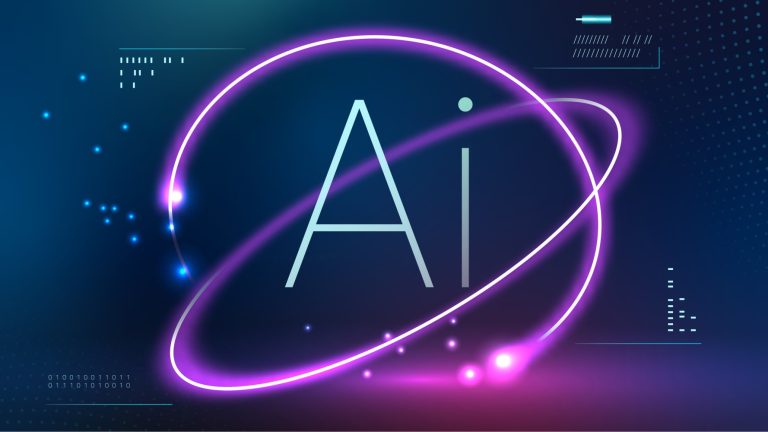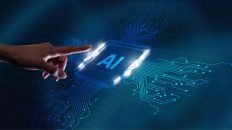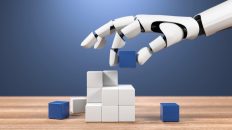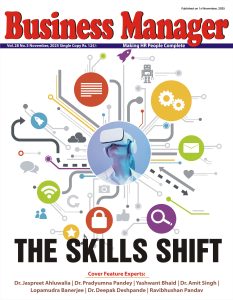Artificial Intelligence (AI) isn’t just a buzzword anymore — it’s a daily force quietly transforming the global job landscape. Across industries, from banking to manufacturing to media, AI systems are increasingly taking over repetitive, rule-based, or data-heavy roles once performed by humans. Yet, paradoxically, as automation replaces some jobs, it’s also spawning an entirely new breed of work — demanding fresh skills, hybrid thinking, and human creativity at its core.
The story of AI and jobs, therefore, isn’t simply one of loss or gain. It’s one of transformation — a steady reshaping of work itself.
The Invisible Job Losses
While mass job losses make headlines, the subtler story lies beneath: the jobs disappearing without fanfare. AI-powered tools are automating back-end operations and low-skill processes across sectors.
In customer support, chatbots now handle up to 70% of initial queries, reducing demand for large call centre teams. In banking, credit scoring and risk analysis are being run by machine learning models that learn faster than any human analyst. Even in journalism, AI tools generate market reports, sports updates, and financial summaries in seconds.
“AI isn’t firing people overnight — it’s quietly making some roles redundant by attrition,” says a senior HR executive at a multinational IT company. “Positions are simply not being refilled when someone leaves, because software can now do parts of that job.”
The World Economic Forum’s Future of Jobs Report 2025 predicted that AI and automation would displace around 85 million jobs worldwide — but also create 97 million new ones. As 2025 nears its close, that forecast seems remarkably prescient. The key question now is: are workers transitioning fast enough?
The Rise of Hybrid Roles
AI may be replacing certain job functions, but it’s also spawning hybrid ones that blend human judgment with machine efficiency.
In marketing, professionals now work with AI tools that analyse consumer sentiment or generate ad copy drafts, but the final creative direction still depends on human insight. In healthcare, radiologists are increasingly assisted by AI systems that detect anomalies in scans — yet the diagnosis remains the doctor’s call. Even software engineers, paradoxically, are using AI coding assistants like GitHub Copilot to write and debug faster.
The result? New job titles that barely existed five years ago: Prompt Engineer, AI Ethics Officer, Machine Learning Operations Specialist, Data Labeling Expert, and Human-AI Interaction Designer.
India’s Uneven AI Revolution
In India, the AI shift is being felt unevenly. IT services, financial technology, logistics, and retail are the most affected, while traditional manufacturing and public sector employment remain relatively insulated — for now.
A recent NASSCOM study estimated that AI-led automation could impact nearly 30% of repetitive roles in IT services by 2027. But the same study also found that AI will create over 2.5 million new tech and data jobs, especially in fields like generative AI, data engineering, cybersecurity, and platform management.
Tier-2 cities like Pune, Coimbatore, and Jaipur are emerging as quiet hubs for AI skill training and back-end analytics work. Startups offering reskilling programs in data science and machine learning are mushrooming. Companies like Infosys, Wipro, and TCS have launched massive upskilling initiatives, training lakhs of employees to work with AI instead of competing against it.
However, the transition remains painful for those without digital or analytical skills. Factory workers, clerks, data-entry operators, and lower-level administrative staff are most at risk. Economists warn that if re-skilling doesn’t keep pace, AI could deepen inequality and polarize the workforce into “high-skill coders and low-skill survivors.”
The Human Factor Still Matters
Despite the acceleration, experts agree that AI cannot — and should not — replace human empathy, ethics, or creativity. As businesses integrate automation deeper into their operations, the demand for soft skills is actually rising.
Leadership, communication, negotiation, and emotional intelligence are becoming crucial differentiators in an AI-heavy workplace. “AI can write your report, but it can’t lead your team,” says Anjali Bansal, a corporate governance expert. “The future leaders will be those who understand both people and algorithms.”
Even in sectors like law, design, and HR, professionals are leveraging AI to enhance productivity rather than fear replacement. Recruitment teams use AI tools to screen applications or predict attrition trends, freeing HR managers to focus on engagement and strategy.
New Jobs, New Responsibilities
The emergence of AI also raises ethical and regulatory challenges that themselves create job opportunities. Governments, corporations, and international bodies now require experts to audit AI models, ensure fairness, prevent bias, and safeguard data privacy.
Demand for AI ethicists, compliance officers, and policy analysts is growing rapidly. As AI tools become more autonomous, accountability — who’s responsible when AI makes a mistake — is becoming a key question in employment law and governance.
Adapting to the AI Age
The lesson for both employers and employees is clear: adaptation is non-negotiable. Continuous learning, flexibility, and digital fluency are the new job security.
Governments, too, have a critical role — from incentivising AI innovation to ensuring social safety nets for displaced workers. India’s National Programme on Artificial Intelligence and various state-level skill missions are steps in that direction, but execution remains uneven.
The Bottom Line
AI’s impact on jobs is not a sudden earthquake — it’s a slow-moving tectonic shift. Some jobs will vanish quietly, others will evolve, and new ones will emerge. The challenge — and opportunity — lies in how societies, companies, and individuals respond.
In the words of futurist Alvin Toffler: “The illiterate of the 21st century will not be those who cannot read and write, but those who cannot learn, unlearn, and relearn.”
AI is simply forcing that truth to arrive sooner than expected.










